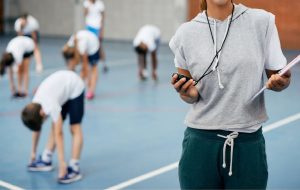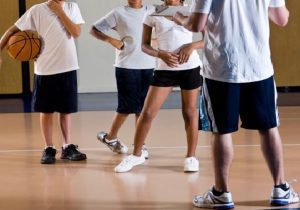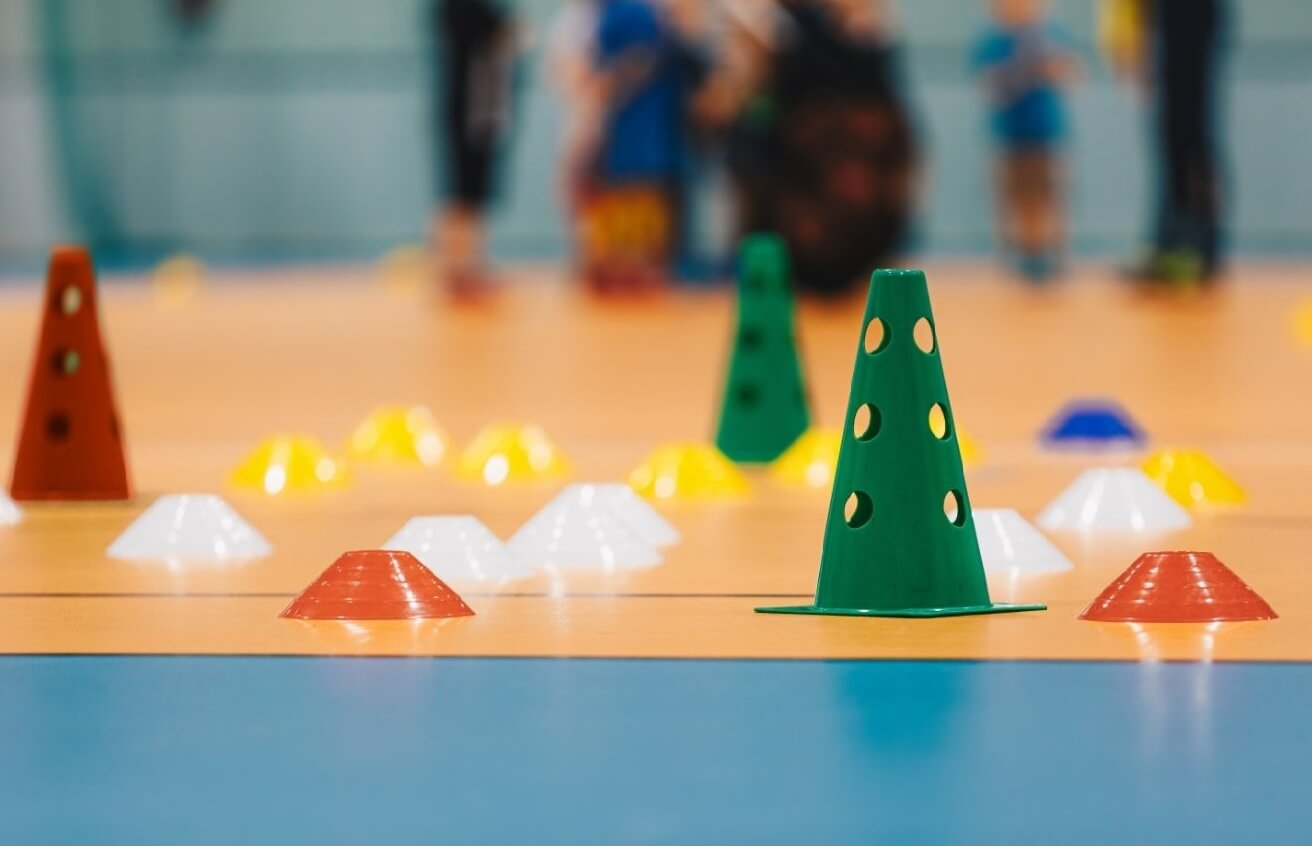If you become a PE Teacher, you will work in schools delivering sports, fitness activities and physical skills lessons, ultimately positively influencing students’ physical and mental well-being. A Physical Education (PE) Teacher makes pupils enjoy being active and supports students in living a healthy life by teaching the personal and social skills that promote physical fitness, sportsmanship, and teamwork.
If you are a sports enthusiast, passionate about health, and interested in working with children, becoming a PE teacher will surely be a fulfilling and joyful career. This guide will provide:
- Detailed information about becoming a PE teacher in the United Kingdom.
- The qualifications required.
- Tips for a successful teaching career.
What Does a PE Teacher Do?
To become a PE teacher, you play a crucial role in helping students develop a positive attitude towards physical activity and health. They work with students of different ages and abilities, designing lessons to promote physical fitness, motor skills, and teamwork. Responsibilities of a PE teacher include:
- Delivering PE Lessons and Activities: To become a PE teacher, you design and lead lessons in a range of sports, games, and fitness activities. These can include football, netball, gymnastics, athletics, swimming, and other sports. They introduce students to the rules, techniques, and safety guidelines of each sport.
- Promoting Physical Fitness and Health: To become a PE teacher, you educate students about the importance of staying active, making healthy lifestyle choices, and developing habits for physical fitness. They provide guidance on topics like nutrition, personal fitness, and mental well-being.
- Teaching Teamwork and Sportsmanship: Beyond physical skills, PE teachers help students develop social skills, such as cooperation, leadership, teamwork, and fair play. They encourage positive attitudes towards competition and help students learn how to win and lose gracefully.
- Assessing Student Progress and Abilities: To become a PE teacher, you assess students’ physical abilities, participation, and progress in various sports and activities. They provide feedback, set individual goals, and support students in improving their skills and fitness.
- Organizing Sports Events and Competitions: To become a PE teacher, you often organize school sports events, tournaments, extracurricular clubs, and inter-school competitions. They coordinate practice sessions, plan event logistics, and ensure the health and safety of all participants.
- Ensuring Safety and Well-Being: To become a PE teacher, you are responsible for ensuring that all activities are conducted safely, adhering to school policies and health guidelines. They perform risk assessments, provide supervision during activities, and respond to injuries or emergencies.

Average PE Teacher Salary in the UK
To become a PE teacher in the UK will gain a base salary based on several factors such as experience, location and type of school. As an entry-level teacher, you would start on the main pay scale. As a PE teacher, the main pay scale would be between £28,000 and £34,000 outside London and £32,000 to £39,000 in London.
As you gain experience, you move up the scale, with the top scale for experienced PE teachers being between £38,000 and £48,000. Senior roles, such as Head of PE Department or Pastoral Leader, can pay more than £50,000.
Key Skills for a Successful PE Teacher
To become a PE teacher, you need a combination of teaching, interpersonal, and sports-related skills to excel in their role. The key skills required include:
- Passion for Sports and Physical Activity: To become a PE teacher, you must have a genuine love for sports, fitness, and physical activity. Enthusiasm for promoting an active lifestyle and encouraging students to enjoy sports is essential.
- Strong Communication and Teaching Skills: To become a PE teacher, you must be able to explain sports techniques, fitness principles, and game rules clearly to students of all ages and abilities. Effective teaching skills help engage students, provide instruction, and offer feedback on performance.
- Leadership and Team-Building Abilities: To become a PE teacher, you need to lead groups of students, organize activities, and encourage teamwork. Leadership skills are essential for managing classes, organizing events, and creating a positive learning environment.
- Patience, Empathy, and Motivation: Working with students of varying abilities requires patience, empathy, and the ability to motivate and inspire. To become a PE teacher, you must adapt lessons to accommodate students with different fitness levels, learning styles, and confidence levels.
- Physical Fitness and Demonstration Skills: To become a PE teacher, you should be physically fit and able to demonstrate sports techniques, exercises, and movements. The ability to lead by example and show students how to perform activities correctly is important for effective teaching.
- Organizational and Planning Skills: To become a PE teacher, you must plan lessons, organize equipment, schedule sports events, and maintain student records. Strong organizational skills help manage time effectively and ensure that lessons are engaging, safe, and well-structured.
- Health and Safety Awareness: Ensuring the safety of students during physical activities is a top priority. To become a PE teacher, you must be aware of health and safety regulations, know how to perform risk assessments, and respond appropriately to injuries or emergencies.

Steps to Become a Physical Education (PE) Teacher in the UK
To become a Physical Education teacher in the UK, you need to follow a series of steps that involve education, training, and gaining practical experience. Here’s how to start your journey:
-
- Obtain a Relevant Undergraduate Degree: The first step is to complete a Bachelor’s degree in a relevant subject, such as Physical Education, Sports Science, Sports Coaching, or Exercise and Health Science. A Bachelor of Education (BEd) in Physical Education is another option for those who want to specialize directly in teaching PE.
If your degree is not directly related to PE but has relevant components (e.g., Sports Management, Health Studies), you may still be eligible to pursue teacher training in PE. - Gain Work Experience in Schools or Sports Coaching: Gaining practical experience in working with young people is valuable for aspiring PE teachers. Volunteer or work as a Teaching Assistant, Sports Coach, Youth Leader, or Summer Camp Instructor to develop your skills in teaching, organizing activities, and working with children.
Experience in coaching sports clubs, leading fitness classes, or helping at school sports events will strengthen your application for teacher training programs. - Complete Initial Teacher Training (ITT) or Postgraduate Certificate in Education (PGCE): To become a qualified PE teacher, you must complete Initial Teacher Training (ITT), which leads to Qualified Teacher Status (QTS). There are different routes to obtain QTS:
- Postgraduate Certificate in Education (PGCE): A one-year program for graduates who want to train as teachers. A PGCE in Secondary Physical Education combines university-based learning with school placements to provide practical teaching experience.
- School Direct or SCITT (School-Centered Initial Teacher Training): This route allows you to train within a school setting while working towards QTS. It is suitable for those who prefer hands-on experience and are ready to start teaching in a classroom.
- Apply for Qualified Teacher Status (QTS): After completing your teacher training, you will be recommended for Qualified Teacher Status (QTS), which is required to teach in state schools in England and Wales. QTS is awarded by the Teaching Regulation Agency (TRA) after you have demonstrated that you meet the teaching standards.
In Scotland, PE teachers must obtain Registration with the General Teaching Council for Scotland (GTCS), and in Northern Ireland, General Teaching Council for Northern Ireland (GTCNI) handles teacher registration. - Find Employment as a PE Teacher: Once you have obtained QTS, you can start applying for PE teacher positions in secondary schools, academies, independent schools, and other educational settings. Use job boards like TES (Times Educational Supplement), Indeed, and local authority websites to find vacancies.
If you’re just starting your career, consider applying for positions as a Newly Qualified Teacher (NQT), where you will receive mentorship and support during your first year of teaching. - Engage in Continuous Professional Development (CPD): To maintain and develop your skills as a PE teacher, it’s important to engage in Continuous Professional Development (CPD). This includes attending workshops, completing additional qualifications (e.g., coaching certificates), participating in professional networks, and staying updated on teaching methods, sports safety, and curriculum changes.
- Obtain a Relevant Undergraduate Degree: The first step is to complete a Bachelor’s degree in a relevant subject, such as Physical Education, Sports Science, Sports Coaching, or Exercise and Health Science. A Bachelor of Education (BEd) in Physical Education is another option for those who want to specialize directly in teaching PE.
Tips for Aspiring PE Teachers
- Develop Coaching and Sports Skills Across a Range of Activities: To become a PE teacher, you should be familiar with a variety of sports and activities. Gain experience in coaching or participating in different sports to expand your skill set and build confidence in teaching various PE lessons.
- Practice Planning Engaging and Inclusive Lessons: Learn to design PE lessons that cater to students of different abilities and interests. Practice planning lessons that promote participation, develop skills, and keep students motivated. Consider how to modify activities to include all students, including those with special educational needs or disabilities.
- Build Strong Classroom and Behavior Management Skills: Effective behavior management is key to successful teaching. Practice strategies for maintaining discipline, promoting teamwork, and encouraging respect among students to create a positive learning environment.
- Stay Physically Active and Lead by Example: To become a PE teacher, you’ll be a role model for students. Stay active, maintain your fitness, and lead by example to inspire students to adopt a healthy lifestyle.
- Engage with Professional PE Networks and Associations: Joining professional networks and associations like afPE (Association for Physical Education), UK Coaching, or CIMSPA (Chartered Institute for the Management of Sport and Physical Activity) can provide valuable resources, support, and opportunities for professional development. Engaging with these communities allows you to stay updated on best practices, teaching techniques, and policy changes within PE education.
Frequently Asked Questions
Why Should You Become a PE Teacher?
For people who enjoy sports, enjoy being active, like working with young people, and want to be outdoors, a career as a physical education teacher can be very rewarding. It enables the teacher to motivate students, develop important life skills, such as teamwork and leadership, and make a difference in students’ lives through their physical and mental well-being.
Is a Career as a PE Teacher Right for You?
PE teaching is a good career for anyone interested in physical activity and sports who enjoys being around children, is patient and adaptable, has good interpersonal skills, and likes teaching. PE teachers are responsible for planning, delivering, and assessing engaging and fun physical education lessons and activities to all children in the 5 to 18 age group, regardless of age, gender, race, religion, sexuality, level of ability or disability.
What Are the Salary Prospects for PE Teachers in the UK?
Newly qualified teachers earn between £28,000 and £34,000 per year, with an increased salary in London. With each step up the pay scale, teachers earn between £38,000 and £4. Head of Department roles pay more, with salaries over £50,000. Suppose teachers have additional responsibilities to lead whole-school sports events or take on pastoral roles. In that case, they will get a salary allowance or bonus.
What Qualifications Are Necessary to Become a PE Teacher?
To be a PE teacher, you need to complete a bachelor’s degree in Physical Education, Sports Science or a related subject, followed by a Postgraduate Certificate of Education (PGCE) or School-Centred Initial Teacher Training (SCITT) program that would award you a Qualified Teacher Status (QTS). Having work experience in a sports coaching or teaching setting would also be helpful.
Do You Need Coaching Experience to Become a PE Teacher?
Although it is not necessary to be a coach to be a PE teacher, it is very useful to have coached sports or physical activities before applying to train as a PE teacher. Being a sports coach means you have teaching experience, an insight into various sports, and an idea of how to work with young people.
What Is the Career Outlook for PE Teachers?
There’s a good demand for PE teachers in the UK. Physical education is an obligatory part of the school curriculum in secondary schools, primary schools (sometimes), academies and private schools. PE teachers can move up the ladder to the Head of the PE Department, Sports Coordinator, or leadership roles at the school level. Many PE teachers have also moved into sports coaching, community sports work, and health and fitness education.
What Are the Career Progression Options for PE Teachers?
PE teachers can advance to more senior positions within a school, such as Head of PE Department, Pastoral Leader, or Head of Year. You could also move into senior leadership roles within a school as Deputy Head Teacher or Head Teacher. If you are interested in specialising, there are sports development, coaching, curriculum design or health promotion opportunities. PE teachers can also continue their studies by working in sports psychology, exercise physiology, or physical activity research.
What Are the Exit Options and Opportunities Beyond PE Teaching?
The skills that develop in the role of PE teacher – leadership, communication, planning, teamwork – are transferable to a wide range of career paths. PE teachers can transition into sports coaching, fitness training, sports development, health and well-being consultancy or youth work. Some are well-suited to move towards more general educational paths, such as roles in school management, education policy or community programme management.



